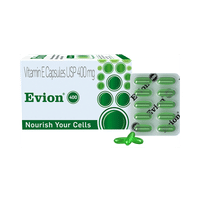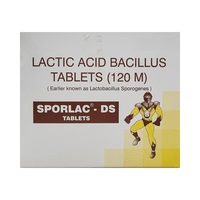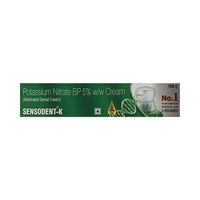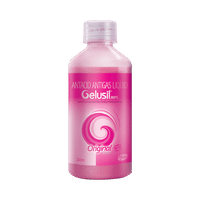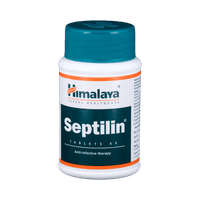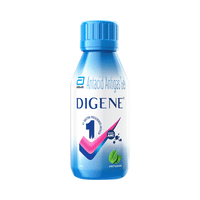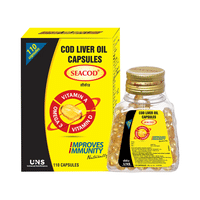Chloromide Eye Drop
Rs.41.70for 1 packet(s) (10 ml Eye Drop each)
food interaction for Chloromide
alcohol interaction for Chloromide
pregnancy interaction for Chloromide
lactation interaction for Chloromide
food
alcohol
pregnancy
lactation
No interaction found/established
No interaction found/established
Chloromide Eye Drop may be unsafe to use during pregnancy. Although there are limited studies in humans, animal studies have shown harmful effects on the developing baby. Your doctor will weigh the benefits and any potential risks before prescribing it to you. Please consult your doctor.
CONSULT YOUR DOCTOR
Information regarding the use of Chloromide Eye Drop during breastfeeding is not available. Please consult your doctor.
CONSULT YOUR DOCTOR
SALT INFORMATION FOR Chloromide
Chloramphenicol(0.5% w/v)
Uses
Chloramphenicol is used in the treatment of bacterial infections. It is used to treat certain types of serious infections caused by bacteria when other antibiotics cannot be used.
How it works
Chloramphenicol is an antibiotic which stops the growth of bacteria. It does so by preventing synthesis of essential proteins required by bacteria to carry out vital functions. This does not directly kill the bacteria, but prevents them from increasing in numbers, and eventually clears up the infection.
Common side effects
Vomiting, Nausea, Diarrhea, Glossitis (tongue inflammation), Hypersensitivity, Bone marrow depression, Aplastic anemia, Increased bleeding time, Optic neuritis, Ototoxicity, Acidotic cardiovascular collapse, Stomatitis (Inflammation of the mouth), Enterocolitis, Gray baby syndrome, Application site reactions (burning, irritation, itching and redness), Blood dyscrasias, Headache, Depression, Delirium (acute confusional state), Jarisch-Herxheimer reaction, Superinfection
Sulphacetamide(20% w/v)
Uses
Sulphacetamide is used in the treatment of bacterial infections.
How it works
Sulphacetamide is an antibiotic. It works by preventing synthesis of essential proteins required by bacteria to carry out vital functions. Thus, it stops the bacteria from growing, and prevents the infection from spreading.
Common side effects
Allergic reaction, Burning sensation, Application site irritation, Stinging sensation, Conjunctivitis, Conjunctival hyperemia, Secondary infections, Stevens-Johnson syndrome, Systemic lupus erythematosus, Fulminant hepatic necrosis, Agranulocytosis (deficiency of granulocytes in the blood), Aplastic anemia, Liver necrosis
SUBSTITUTES FOR Chloromide
6 Substitutes
6 Substitutes
Sorted By
 Rs. 101.37pay 371% more per ml of Eye Drop
Rs. 101.37pay 371% more per ml of Eye Drop Rs. 75pay 74% more per ml of Eye Drop
Rs. 75pay 74% more per ml of Eye Drop Rs. 21.60same price
Rs. 21.60same price Rs. 20save 53% more per ml of Eye Drop
Rs. 20save 53% more per ml of Eye Drop Rs. 100pay 133% more per ml of Eye Drop
Rs. 100pay 133% more per ml of Eye Drop
Expert advice FOR Chloromide
- Your doctor has prescribed Chloramphenicol to cure your infection and improve your symptoms.
- Do not skip any doses and finish the full course of treatment even if you feel better. Stopping it early may make the infection to come back and harder to treat.
- This can be taken either with or without food.
- Your doctor may get blood tests done to check your blood cells before starting treatment and regularly thereafter.
- Do not use Chloramphenicol if you are pregnant, planning to conceive, or breastfeeding.
- Inform your doctor if you have liver or kidney disease.
Frequently asked questions FOR Chloromide
Chloramphenicol
Q. How long does Chloramphenicol takes to work?
Usually, Chloramphenicol starts working soon after taking it. However, it may take some days to kill all the harmful bacteria and make you feel better.
Q. What if I don't get better after using Chloramphenicol?
Inform your doctor if you don't feel better after finishing the full course of treatment. Also, inform him if your symptoms are getting worse while using this medicine.
Q. Can I stop taking Chloramphenicol when my symptoms are relieved?
No, do not stop taking Chloramphenicol and complete the full course of treatment even if you feel better. Your symptoms may improve before the infection is completely cured.
Sulphacetamide
Q. What if I don't get better after using Sulphacetamide?
Inform your doctor if you don't feel better after finishing the full course of treatment. Also, inform him if your symptoms are getting worse while using this medicine.
Q. Can I stop taking Sulphacetamide when my symptoms are relieved?
No, do not stop taking Sulphacetamide and complete the full course of treatment even if you feel better. Your symptoms may improve before the infection is completely cured.
Q. How long does Sulphacetamide takes to work?
Usually, Sulphacetamide starts working soon after taking it. However, it may take some days to kill all the harmful bacteria and make you feel better.














